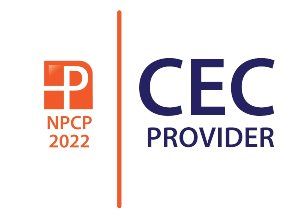Terms and conditions
Read Hearts and Bones Pilates' policies about privacy, cancellation and refunds, intellectual property, and harassment.
Protecting your privacy
Hearts and Bones Pilates is committed to protecting your privacy. We will only use personal information you provide for the purpose for which it was provided. We will keep your information secure and will not disclose it to any third party.
Please contact us immediately if you have any concerns about the personal information we hold or if you wish to review or correct your information.
Classes, training, and workshops
Cancellation and refund policy
We have the following refund policies if you cancel.
- Classes: You will need to pay the fee for your cancelled class if you give us less than 24 hours' notice. We do not refund class cards after payment.
- Training: If you are unable to attend the program, we can credit your fees toward other Hearts and Bones Pilates training scheduled for within 12 months of the cancelled training start date, or we apply the refund policy explained below. Your $50 non-refundable registration fee will not be refunded. Note that we can only credit fees toward another program once. If we have to cancel for any reason, we will refund your payment in full within 6 weeks of the cancellation notification. Payment to be made in full 7 days before the start of your chosen course.
- Student refund upon withdrawal or termination:
- After 10% but within first 25 % of program - 75% less cancellation charge.
- After 25% but within first 50% of program - 50% less cancellation charge.
- After 50% of the program - no refund.
- Students may cancel their contract at any time prior to the registration and payment date which is 7 days before the start of the course. All refunds will be made within 30 days of the date of termination if fees had been paid ahead of time.
- Workshops: We do not refund registrations, so please choose your training or workshops carefully. If you are unable to attend, we can credit your fees toward other Hearts and Bones Pilates training or workshop(s) scheduled for within 12 months of the cancelled training or workshop start date. Note that we can only credit workshop fees once. If you are unable to attend the re-booked workshop, we cannot further credit or refund your fees. If we have to cancel for any reason, we will refund your payment in full within 6 weeks of the cancellation notification.
- Special workshops and consultancy: If you have to cancel a workshop or consultancy, we will invoice you for the cost of any materials purchased and an hourly rate for time already spent working on your project.
Protecting our intellectual property
Students shall not:
- reproduce, modify, translate or create any derivative work of all or any portion of any Hearts and Bones Pilates study guide or workshop handout provided with a course, programme, or workshop
- sell, sublicense, lease, loan, provide, distribute or otherwise transfer all or any portion of any study guide or workshop
- reverse engineer, disassemble, or decompile all or part of the electronic version of any Hearts and Bones study guide or workshop
- remove, alter, cover or obfuscate any copyright notices or other proprietary rights notices placed or embedded by Hearts and Bones
- cause or permit any third party to do any of the foregoing.
Harassment policy
In order to ensure all our staff and students feel comfortable raising any concerns they have regarding harassment, we have created a detailed harassment policy. We hope that the policy will be read by all staff and students and referred to, should any concerns arise. If you have any questions or require any clarifications regarding our harassment policy, please speak to Tania Huddart. Harassment occurs when a person engages in unwanted conduct that has the purpose or effect of violating your dignity or creating an intimidating, hostile, degrading, humiliating or offensive environment for you.
Harassment is also defined as unwanted conduct related to relevant protected characteristics that have the purpose or effect of violating your dignity, or creating an intimidating, hostile, degrading, humiliating or offensive environment for you.
The relevant protected characteristics are:
- Age
- Disability
- Gender reassignment
- Marriage and civil partnership
- Pregnancy and maternity
- Race
- Religion or belief
- Sex
- Sexual orientation
Sexual harassment
Sexual harassment is a particular type of discrimination which is typically defined as unwelcome sexual advances or other verbal, physical or non-physical conduct of a sexual nature in the workplace. This could be used as a factor in decisions affecting some aspect of employment or substantially interferes with an individual’s employment by creating an intimidating or hostile work environment. Unwelcome sexual advances, requests for sexual favours and other verbal, physical or non-physical conduct of a sexual nature that could constitute sexual harassment when:
- Submission to such conduct is either explicitly or implicitly made a term or condition of an individual’s employment
- Submission to or rejection of such conduct by an individual is used as the basis for employment decisions affecting such individual
- Such conduct has the purpose or effect of unreasonably interfering with an individual’s work performance or creating an intimidating, hostile or offensive work environment or otherwise adversely affects an individual’s employment opportunities.
In addition, “romantic” or “consensual” relationships, dating or even isolated sexual encounters between staff and students may constitute or lead to sexual harassment because the junior person involved may not be a willing participant notwithstanding the perception of the senior person or statements of the junior person.
Harassment through bullying
The Advisory, Conciliation and Arbitration Service (ACAS) defines bullying as offensive, malicious or insulting behaviour. It is an abuse or misuse of power through means intended to undermine, humiliate, denigrate or injure you. Bullying tactics can include hostile verbal or nonverbal communication, sabotage, exclusion, manipulation, and psychological or physical abuse.
Examples of harassment behaviours
Examples of harassment behaviours include:
- Rape, molestation, assault or attempts to do any of these actions
- Physical assaults of a sexual nature such as touching, pinching, patting, grabbing or brushing against another person’s body.
- Making unwanted sexual advances or propositions
- Sexually orientated gestures, noises, remarks, jokes or comments about a person’s sexuality or sexual experiences
- Making a hostile work environment
- Putting people down or deliberately embarrassing them
- Making insulting or offensive comments or jokes
- Using insulting words or threatening body language
- Leaving offensive or discriminatory displays anywhere in the workplace, such as posters, graffiti, screensavers or other materials which may be demeaning or pornographic.
- Spreading malicious rumours
- Treating someone unfairly
- Picking on or regularly undermining someone
- Denying someone’s training or promotion opportunities
- Making threats or comments about job security without foundation
Your responsibility
Everyone is responsible for their own behaviour. You must:
- Treat everyone with dignity and respect
- Not bully or harass anyone
- Not victimise or attempt to victimise anyone who has made complaints of discrimination, or provided information to support a complaint
- Report incidents to course director if you think they are inappropriate.
If you believe that discrimination is taking place, whether, against you or a colleague, it is important that you bring it to the course directors attention immediately.
Our guarantee
Hearts and Bones is committed to this policy.
If you use this policy to raise a concern, we give you our assurance that you will not suffer any form of retribution or detrimental treatment. We will treat your concern seriously and act according to this harassment policy. If you ask for a matter to be treated in confidence we will respect your request and only make disclosures to third parties, partners, or other staff with your consent. This assurance applies regardless of whether the subject matter of your concern, report or disclosure relates to this company, a client or third party.
Procedure for raising concerns under this policy
If you are concerned about any form of malpractice covered by this policy, you should raise the issue with the course director.
Concerns can be raised orally or in writing. When raising the concern, you may choose to either include your identity or remain anonymous. Remember that once you have raised your concern, in the interests of everyone involved, this is a confidential process.
Responding to concerns raised
After an employee has raised a concern, we will record that concern in our central Report Register which is maintained by Tania Huddart.
We will then decide how to respond in a responsible and appropriate manner under this policy. This will usually involve making internal enquiries first, but it may be necessary to carry out an investigation at a later stage. This may be formal or informal, depending on the nature of the concern raised. We will endeavour to complete investigations within a reasonable time. We will keep you informed of the progress of the investigation carried out and when it is completed. Please note that we will not be able to inform you of any matters that would infringe the duty of confidentiality owed to others.
Raising your concern externally (exceptional cases)
The purpose of this policy is to give staff and students the opportunity and protection they need to raise concerns internally. We expect that in almost all cases, raising concerns internally would be the most appropriate action for you to take.
Consequences of breaching this policy
Those using the procedure outlined in this policy to raise a concern are assured that they will not suffer any form of retribution or detrimental treatment. To ensure the protection of all our employees and students, those who maliciously make a false allegation will be liable to disciplinary action.
Monitoring and review
Hearts and Bones will regularly monitor the effectiveness of this policy at least annually to ensure it is working in practice. We will provide information and/or training on any changes that are made.
Procedure
Any student who feels s/he has been subject to harassment should take the following actions:
- Speak directly to the source of the discrimination.
- If this is not a reasonable option, or if such an option does not remedy the situation, speak with the Director, Tania Huddart.
Spring Movement's terms and conditions



Hearts & Bones Pilates Centre. All rights reserved. Please comment to: heartsandbonespilates@gmail.com
Terms & conditions